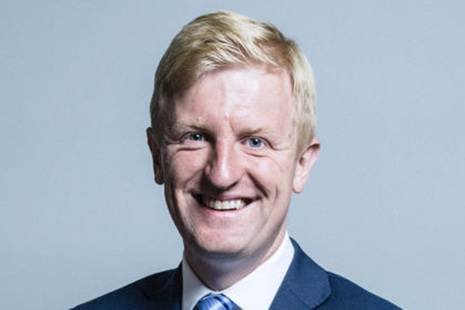Culture Secretary Oliver Dowden says the new Charity Commission chair will “refocus” charities on their mission, amid concerns in government that the sector has been “hijacked by a vocal minority seeking to burnish their woke credentials”.
He is particularly critical of charities looking to tackle their historic links to slavery.
In announcing details of what the government expects of a new Charity Commission chair, Dowden says that the recruitment process “provides an opportunity to refocus charities on their important founding missions”.
In an article in the Sunday Telegraph, which has been published on the government’s website, Dowden launches an attack on charities that have sought to address their past links to slavery, racism and colonialism.
This includes Guy’s and St Thomas’ Foundation which is looking to move a statue of Thomas Guy “to a less prominent position” at Guy’s Hospital due to his links with slavery. Eighteenth century Hospital benefactor Guy had held shares in the South Sea Company, which was prominent in the slave trade.
But Dowden said: “Just last week the Guy’s and St Thomas’ Foundation overruled legal advice to move a statue of Thomas Guy from its main forecourt.
"A public consultation had been run on the matter, with statements from the foundation citing Guy’s shares in the South Sea Company, which had a major role in the evils of the slave trade.
"His role in founding one of the world’s finest hospitals was deemed entirely secondary to this share ownership. Three quarters of those who responded said the statue should remain in place, and yet they announced they were moving it anyway."
Another charity he mentions is the Churchill Fellowship, which had been embroiled in a media storm over a rebrand “which appeared to airbrush Sir Winston Churchill from its public profile”, said Dowden.
Churchill’s documented racist and white supremacist views have courted controversy in recent years.
“The Churchill Fellowship has now stated that it is not seeking to disown the reason that they exist, which is welcome,” said Dowden.
“But I found it quite extraordinary that it got to the position where this clarification was required.”
Recruitment process
Dowden says he has “instructed” those looking to recruit a new Charity Commission chair “to ensure that the new leader of the Commission will restore charities’ focus to their central purpose and empower trustees to be robust”.
He added: “With interviews beginning next week, candidates will be tested on how they will harness the oversight powers of the Commission to commence this rebalancing.
“And ministers will only select a candidate that can convince on these criteria. This is an important first step that will benefit not only the public but the charities themselves. I am convinced that the most successful charities of the next century will be those focused on their core purpose of delivering positive change.”
The new Charity Commission chair will replace Baroness Stowell whose term of office ended earlier this year. During her term she was a vocal critic of the “politicisation” of charities.
This included launching an attack on “lefty lawyers”. MPs had been critical of her suitability in the role.
Commission board member Ian Karet is currently chairing the regulator on a temporary basis.
Charity sector reaction
In its reaction to Dowden’s comments, the National Council for Voluntary Organisations (NCVO) says that “like charities it oversees, the Commission must be above party politics”.
“Charities cannot afford for their regulator to be anything but and the public deserves nothing less,” adding that the next chair of the regulator “should be a politically independent appointee”.
The Secretary of State for @DCMS is responsible for charities. Here’s our response to his article in the @Telegraph about the work of charities, their funding, and the role of the Charity Commission and chair. [THREAD]
— NCVO (@NCVO) September 13, 2021
The NCVO statement adds: “The role of the Commission is to regulate in line with the laws made in Parliament. Within that framework, it is not for the Govt or Commission to tell trustees what is best for their charity or those they serve.”
It adds that “inclusion and speaking out about issues of injustice” was central to trustees’ decision making.
Meanwhile, ACEVO has also raised concerns around Dowden's comments saying, "there is no evidence to suggest that charities are drifting from their missions, and their independence to carry out their work as they see fit is a huge strength of the sector".
The Secretary of State for charities wrote an article on Sunday which outlines his intention to ensure the next chair of the @ChtyCommission shares his view of the kind of work charities should do https://t.co/s5doLjY5jt
— ACEVO (@ACEVO) September 14, 2021













Recent Stories